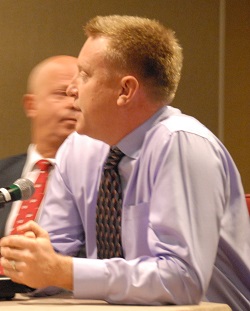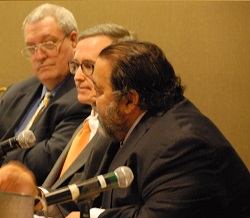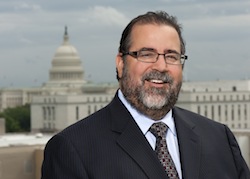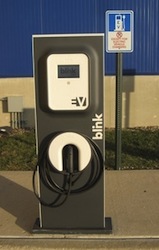UNICA will be weighing in today during the Environmental Protection Agency’s (EPA) public hearing on their 2014 proposed rules for the Renewable Fuel Standard (RFS). Leticia Phillips, the North American representative for the Brazilian Sugarcane Industry Association (UNICA), notes that the organization believes the proposed renewable fuels volumes “pulls the rug from underneath the advanced biofuels industry.”
 Phillips says UNICA on behalf of the Brazilian sugarcane industry has worked collaboratively with the EPA and the U.S. renewable fuel industry for over six years. She notes that since the beginning of the RFS program, EPA had been a strong supporter of the modest but important role Brazilian sugarcane ethanol plays supplying Americans with sustainable fuel.
Phillips says UNICA on behalf of the Brazilian sugarcane industry has worked collaboratively with the EPA and the U.S. renewable fuel industry for over six years. She notes that since the beginning of the RFS program, EPA had been a strong supporter of the modest but important role Brazilian sugarcane ethanol plays supplying Americans with sustainable fuel.
In 2010, explains Phillips, the agency certified that Brazilian sugarcane ethanol cuts carbon dioxide emissions by more than 60 percent and designated it as an advanced renewable fuel. Following congressional intent, she continues, EPA has encouraged advanced biofuels because they are the category of renewable fuel with the greatest greenhouse gas reductions. So it came as an extraordinary shock and is deeply concerning that EPA has proposed to drastically reduce the volumes of advanced fuels for the 2014 RFS.
“Slashing next year’s target for advanced biofuels is a huge step backwards from the Obama administration’s goal of decreasing greenhouse gases and improving energy security,” says Phillips. “Advanced biofuels, including Brazilian sugarcane ethanol, reduce carbon dioxide emissions by over 50 percent compared to gasoline and are a proven solution for addressing climate change. Yet, EPA’s proposed formula for setting advanced biofuel targets blatantly ignores its own estimates that 650-800 million gallons of sugarcane ethanol can be supplied to the United States in 2014.”
The proposed rules cut advanced biofuel volumes next year by more than 40 percent compared to the requirements written into the RFS statute. Phillips notes that while the advanced category is being reduced by 49 percent, they are only proposing less than 10 percent reduction to volume requirements for conventional biofuels, such as corn-based ethanol, which include a number of grandfather facilities that may well not meet the minimum requirement of 20 percent reduction.
EPA should set renewable fuel standards that encourage production and consumption of all available advanced biofuels,” says Phillips. “Because the domestic market for American biofuels is growing rapidly. EPA originally projected that the U.S. would need to import around 660 million gallons of Brazilian sugarcane ethanol to meet the 2013 advanced biofuel standard. However, total sugarcane ethanol imports will end this year at only 450-500 million gallons – not because Brazil has exhausted its capacity for exports – but because American production of advanced biofuels is expanding quicker than EPA forecast.”
Phillips concludes by saying that Congress clearly intended to encourage greater use of advanced biofuels year over year, in order to achieve the largest GHG reductions possible. She notes that UNICA supports EPA’s Option 1, which would set the advanced biofuel volume requirements based on the availability of advanced biofuels plus carryover RINs. She also encourages EPA to consider implementation of California’s low carbon fuel standard when setting the RFS targets.
 A change in the Renewable Fuels Standard (RFS) will have dramatic impacts for the small businesses that have cropped up in rural America. That was the message Patriot Renewable Fuels‘ Judd Hulting made to the Environmental Protection Agency’s hearing on its proposal to reduce the amount of ethanol and biodiesel to be mixed into gasoline.
A change in the Renewable Fuels Standard (RFS) will have dramatic impacts for the small businesses that have cropped up in rural America. That was the message Patriot Renewable Fuels‘ Judd Hulting made to the Environmental Protection Agency’s hearing on its proposal to reduce the amount of ethanol and biodiesel to be mixed into gasoline.








